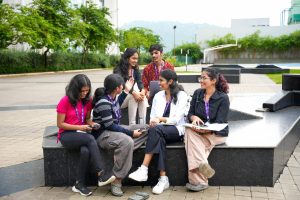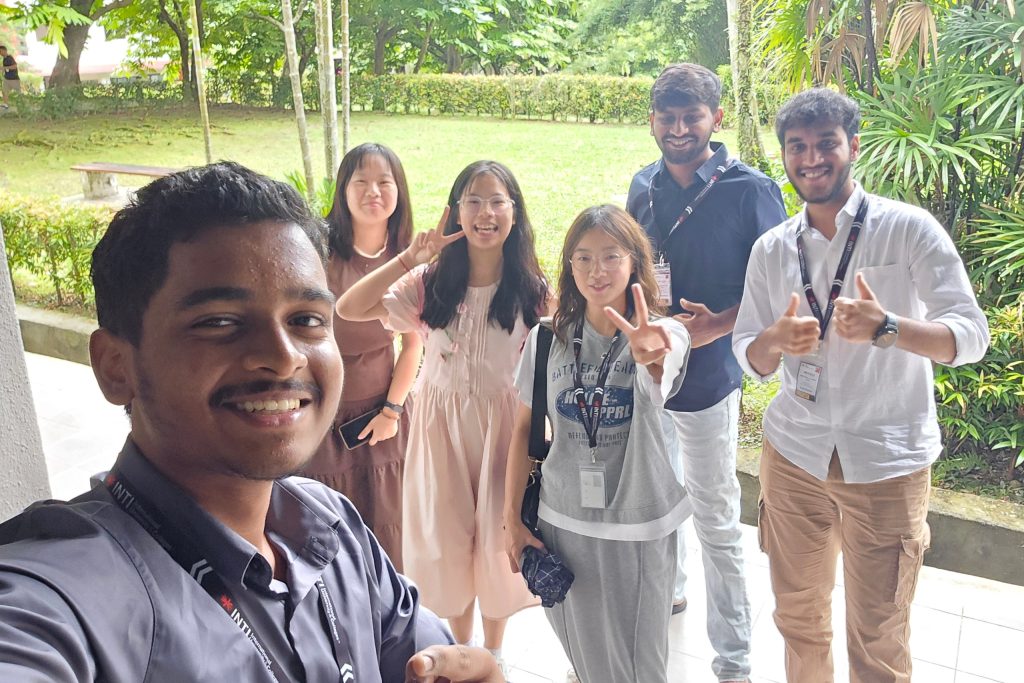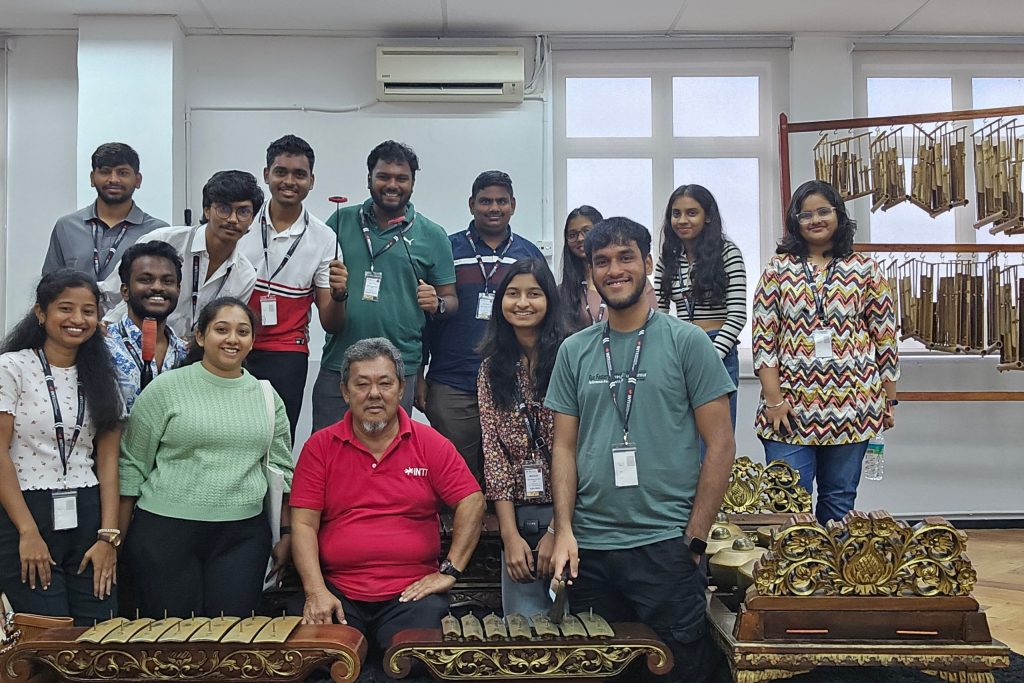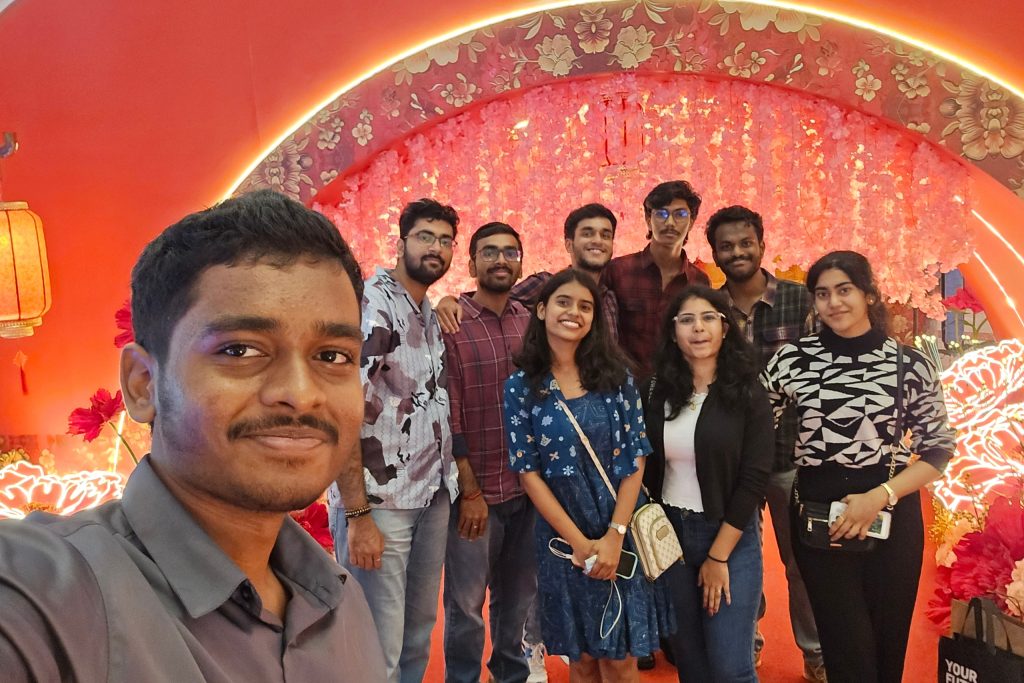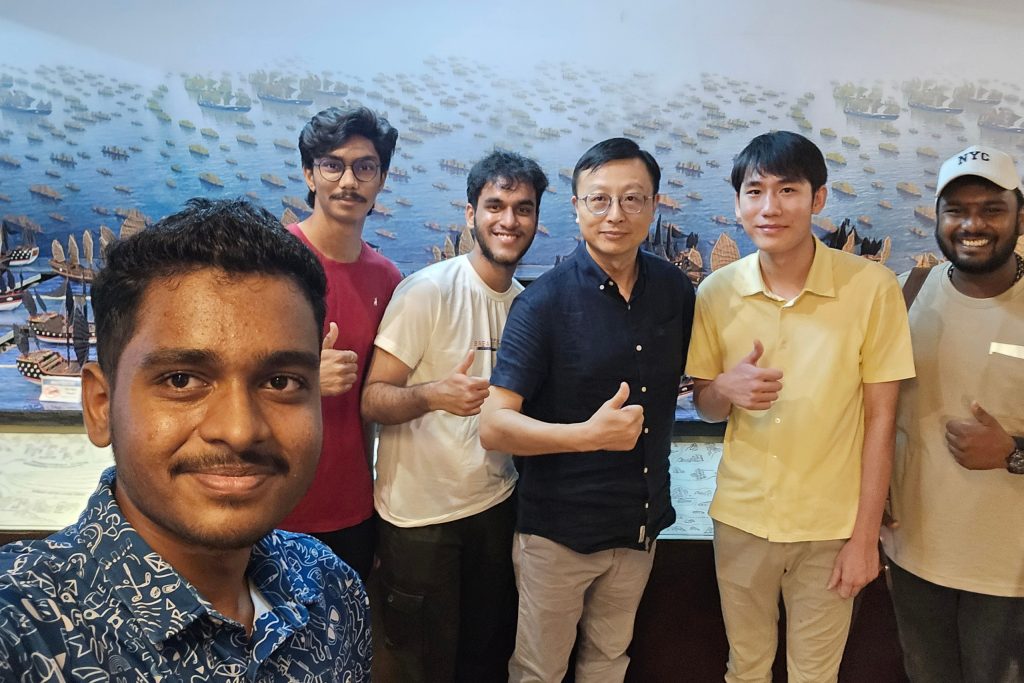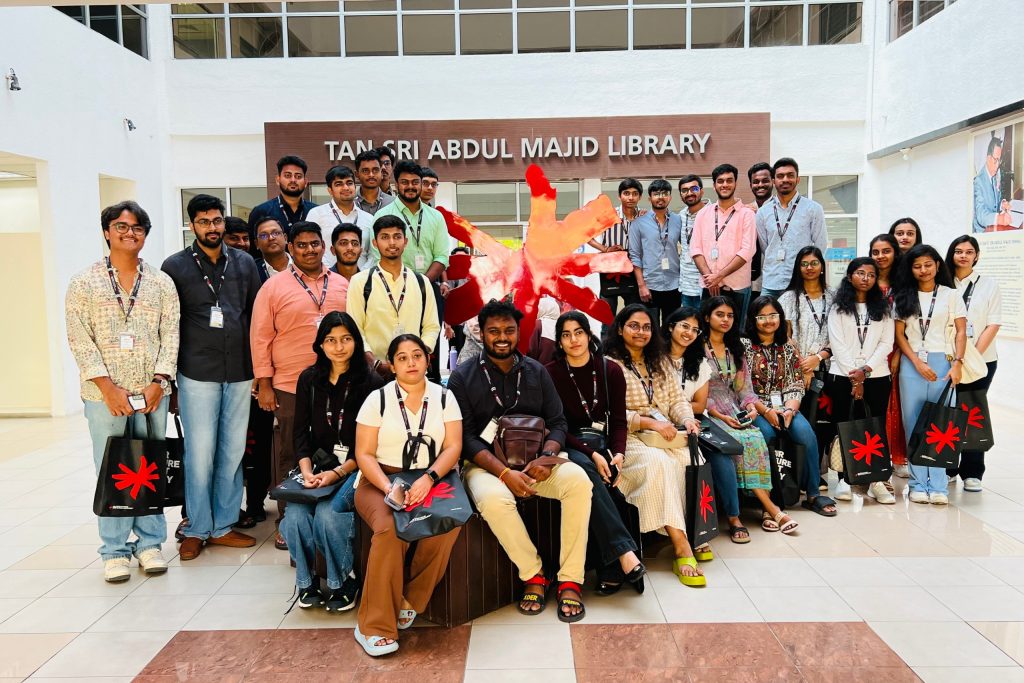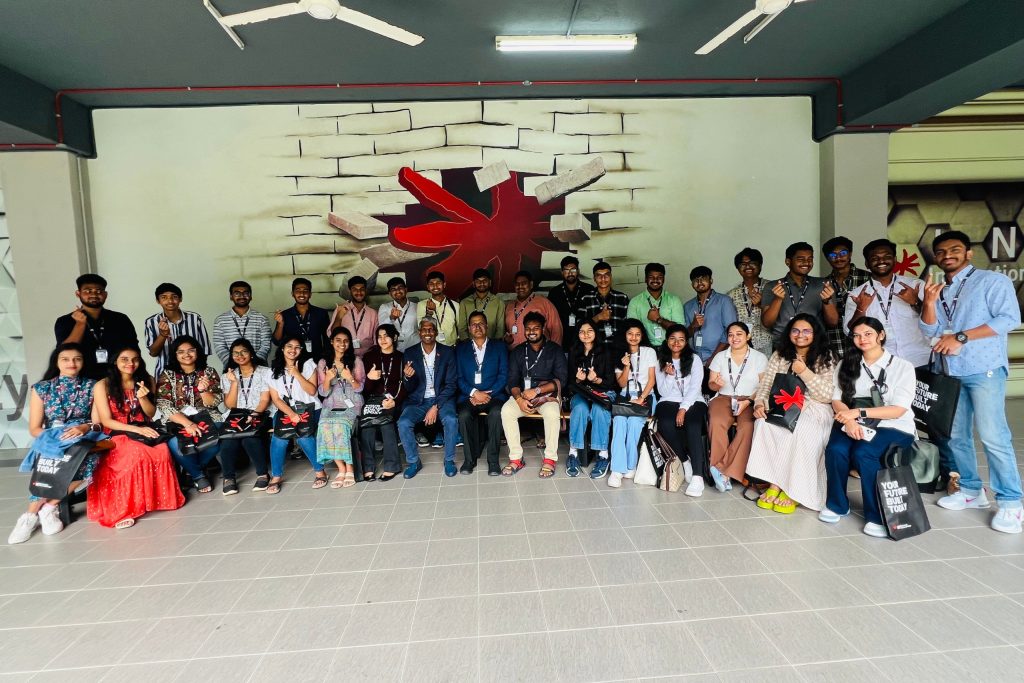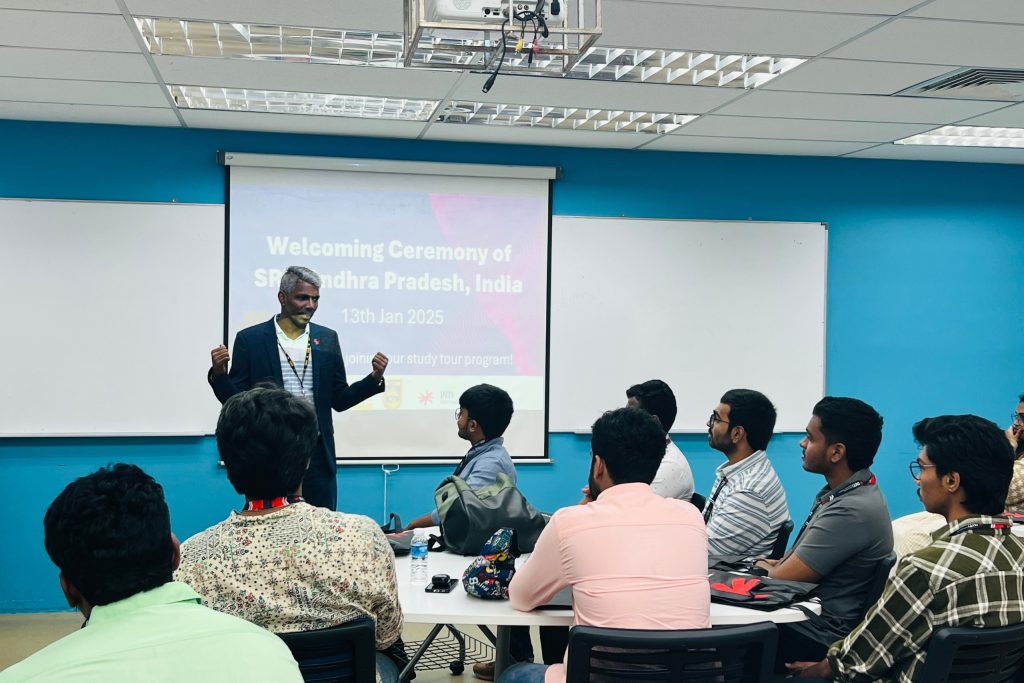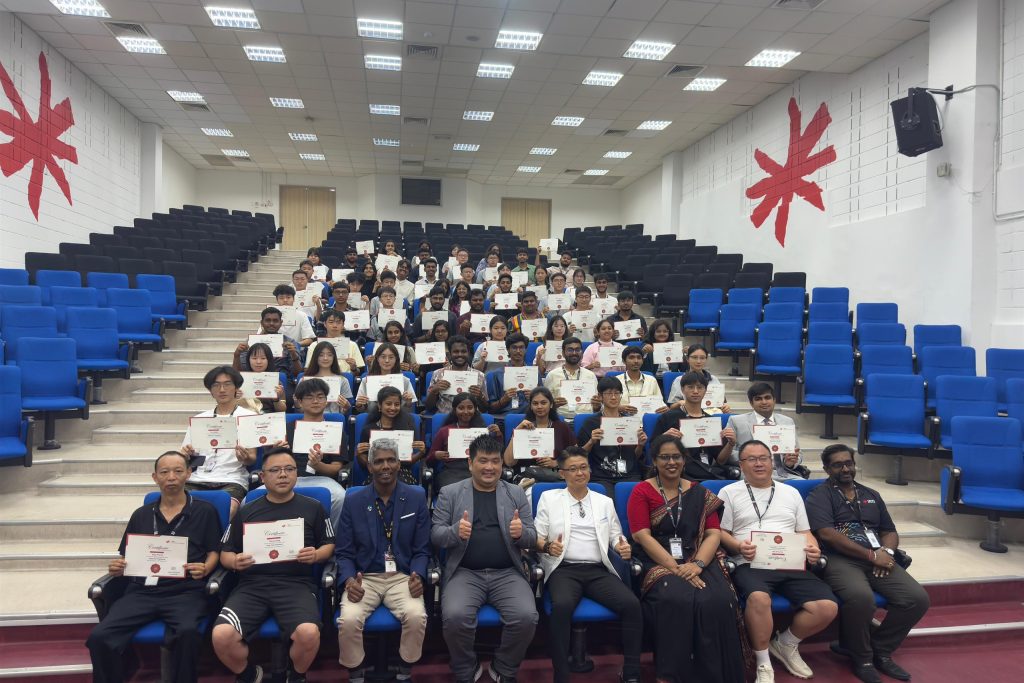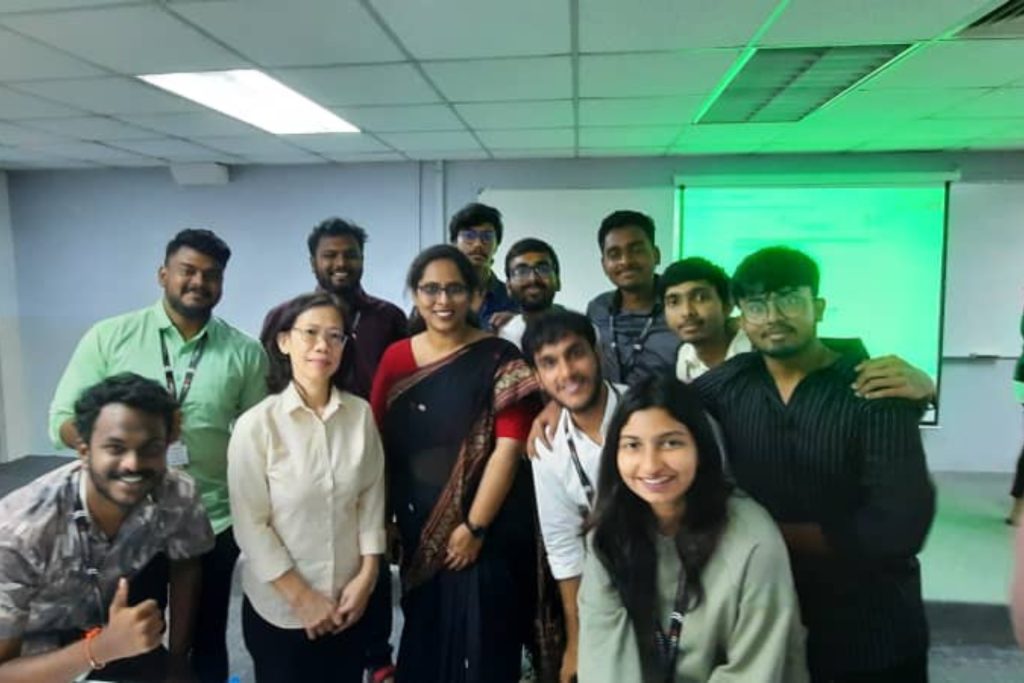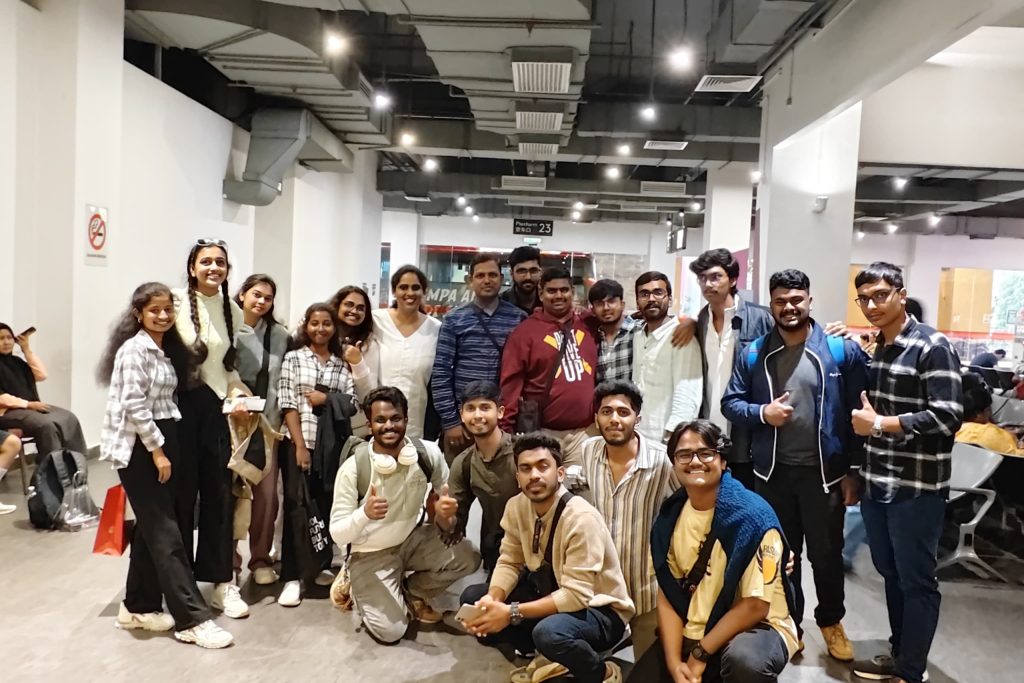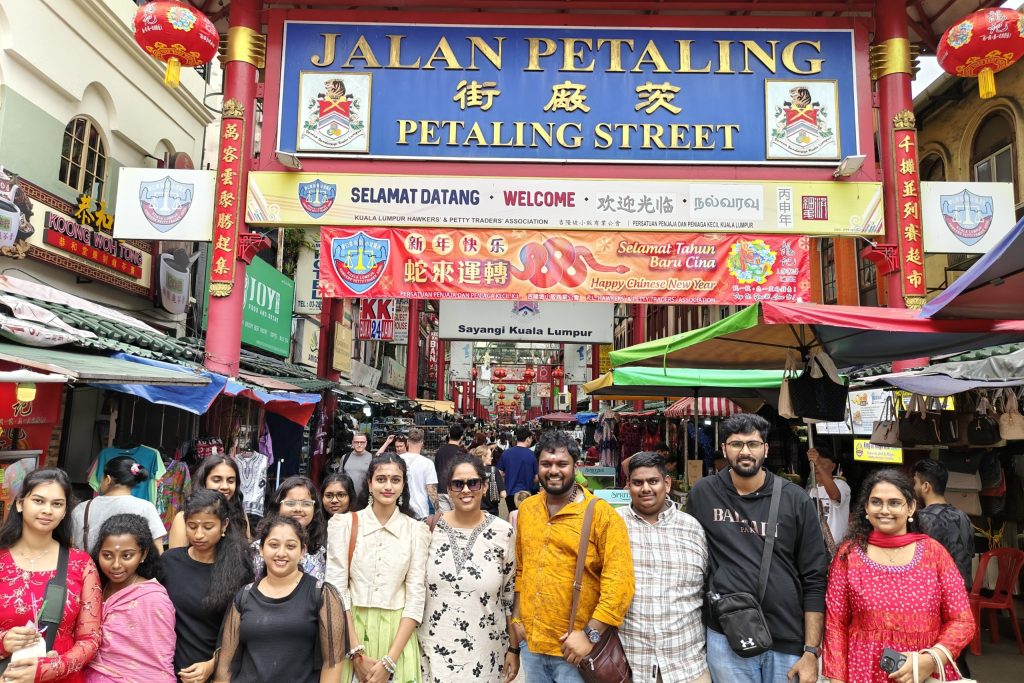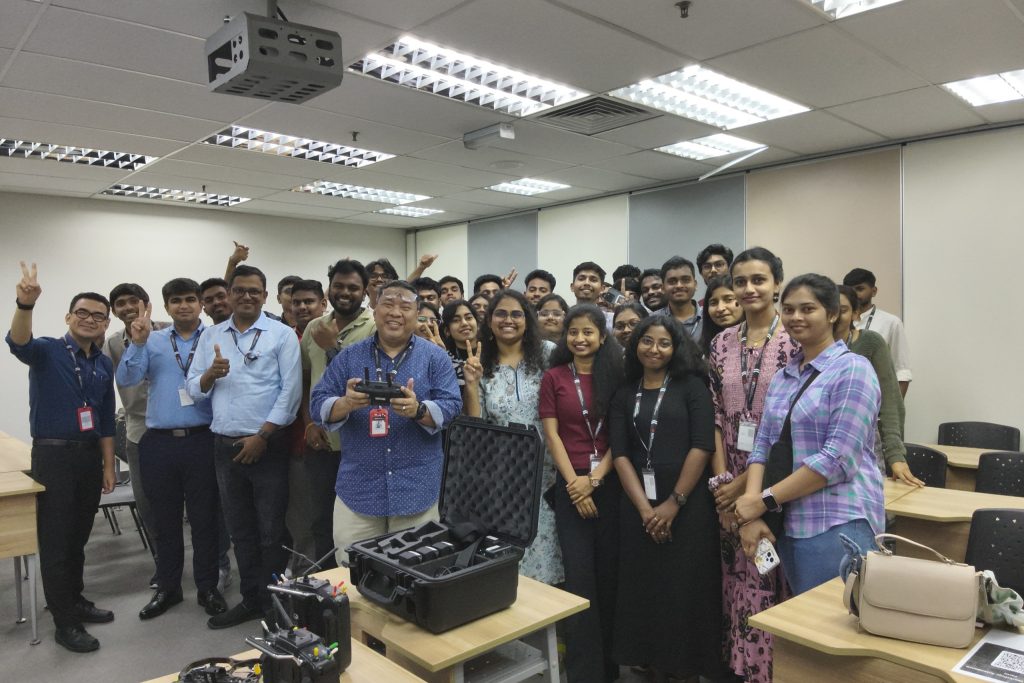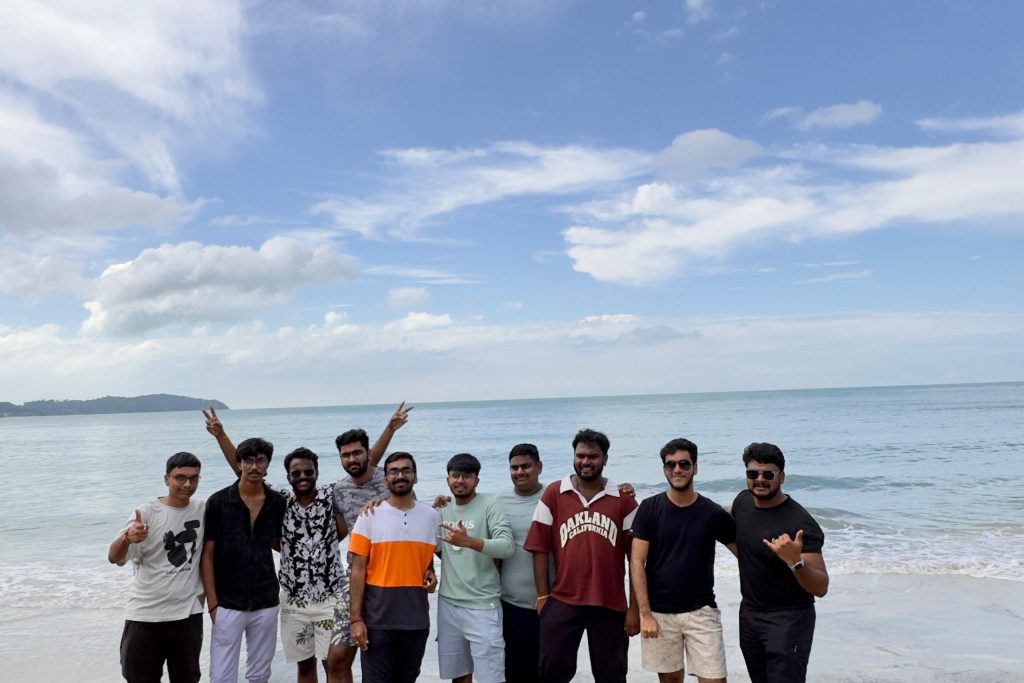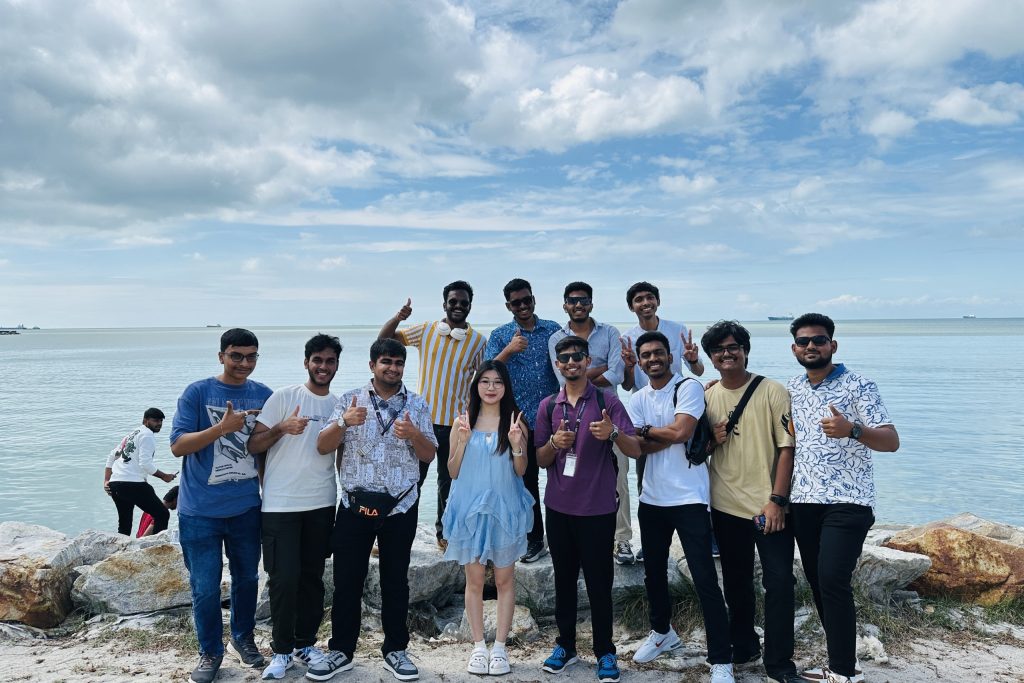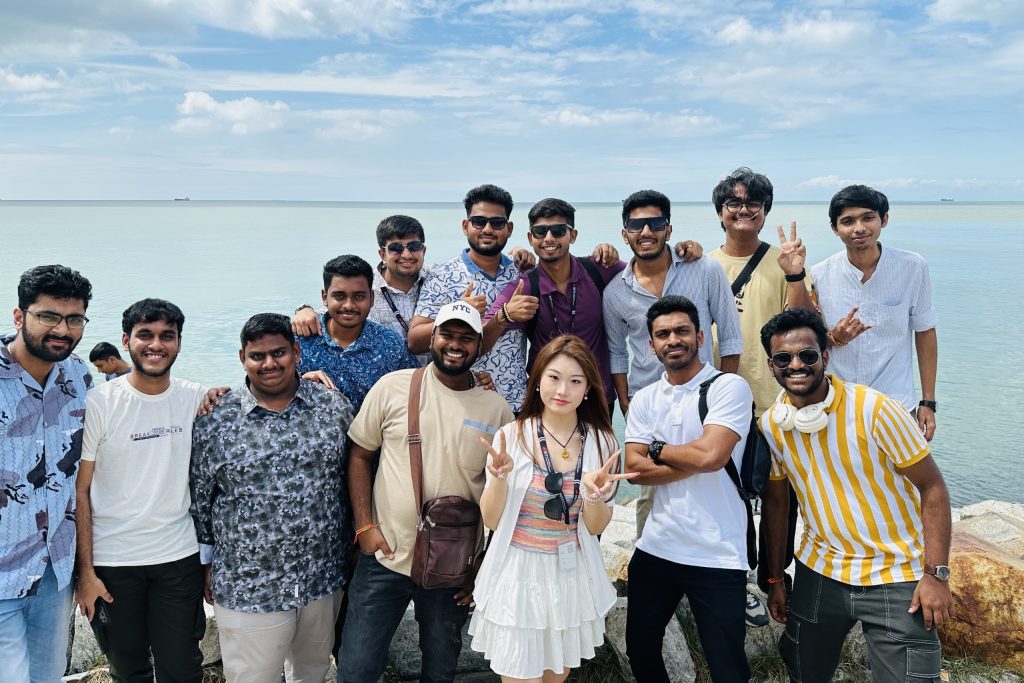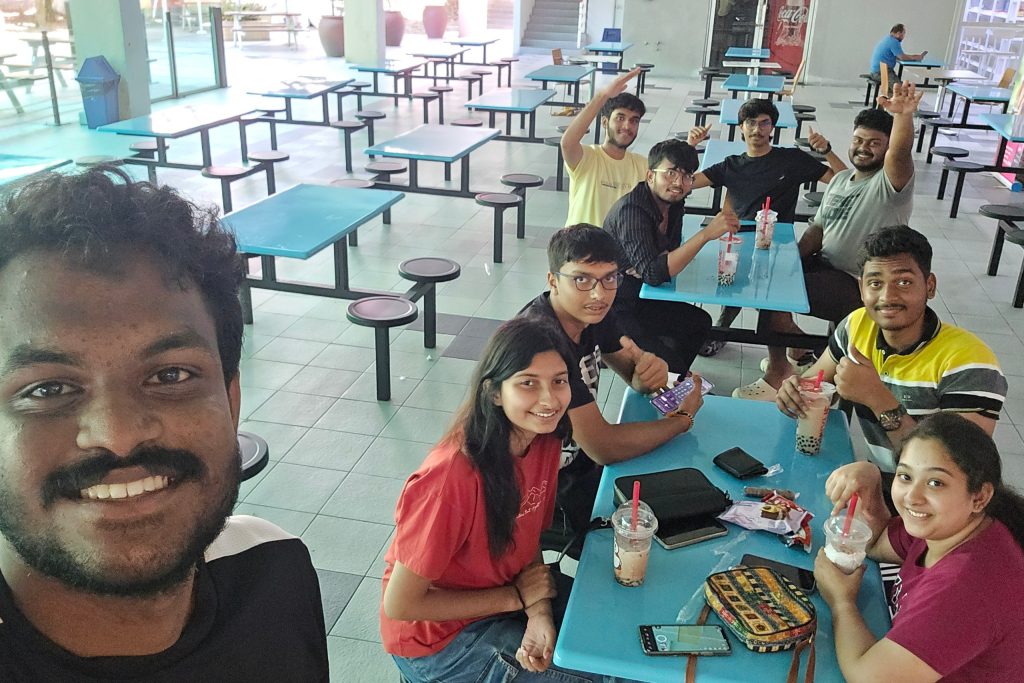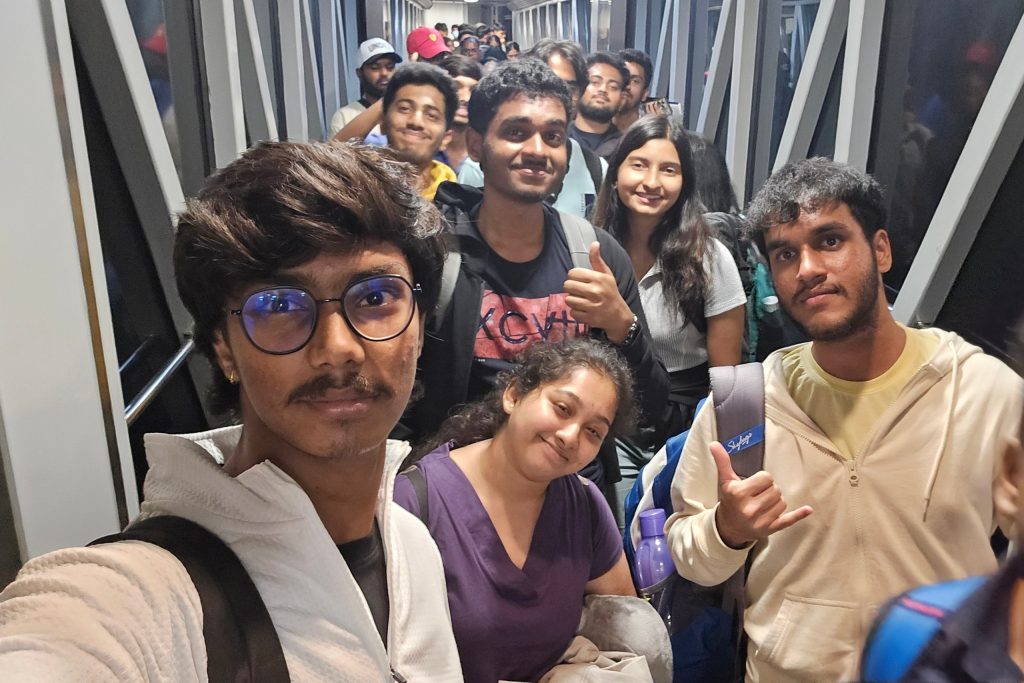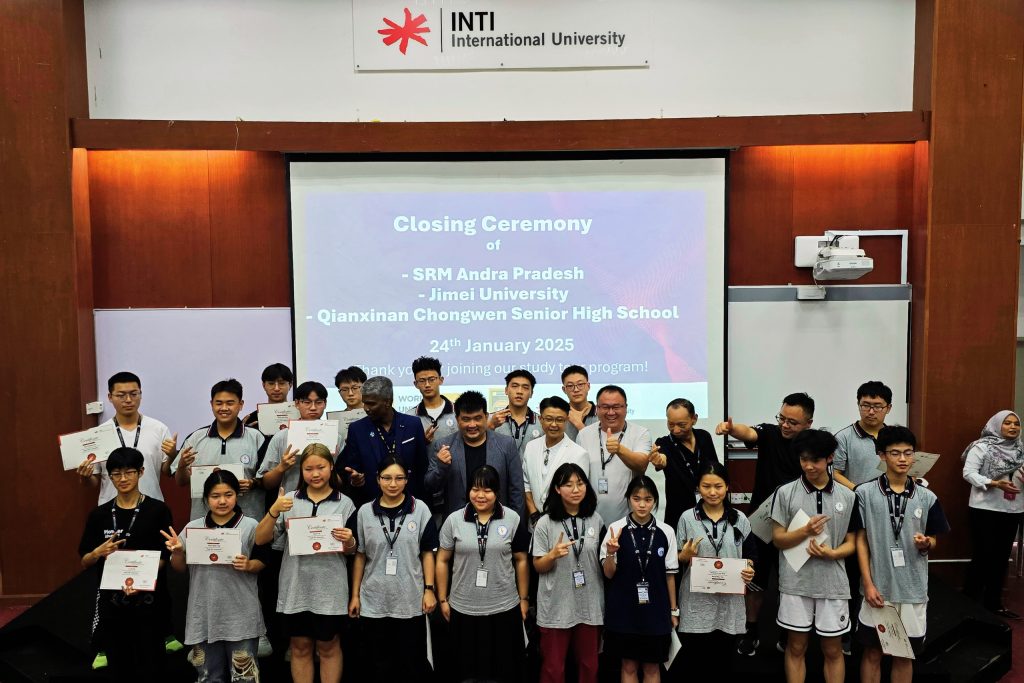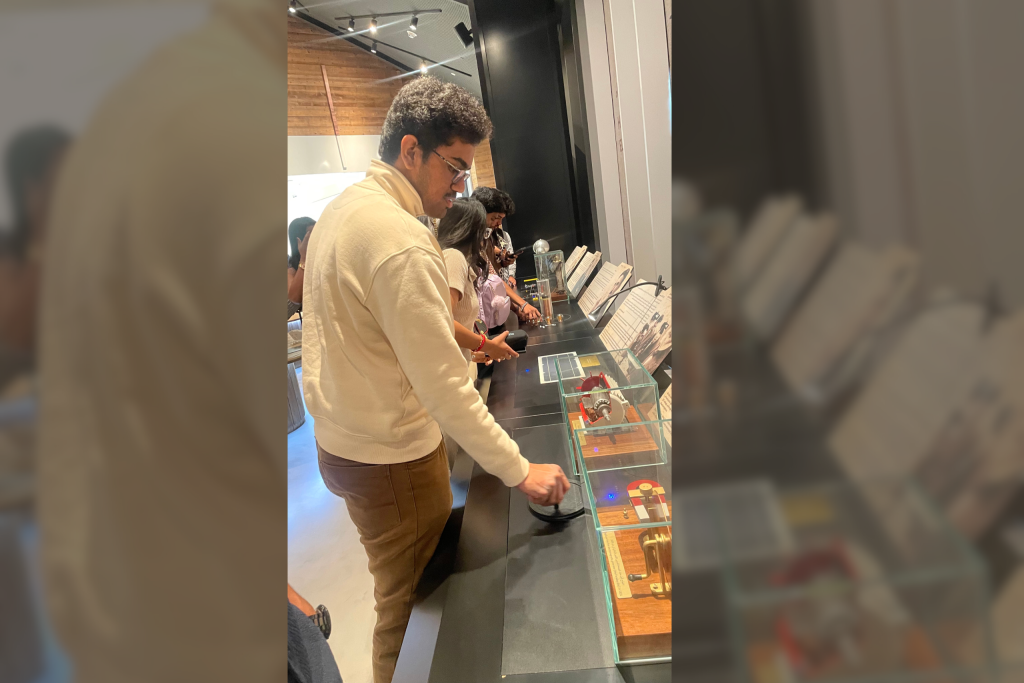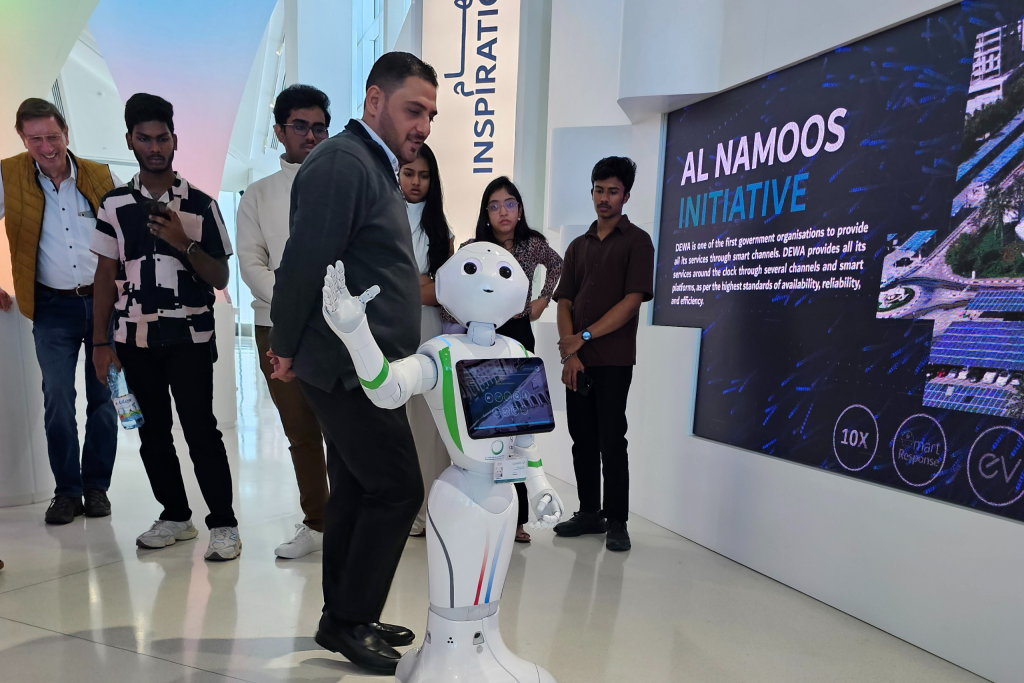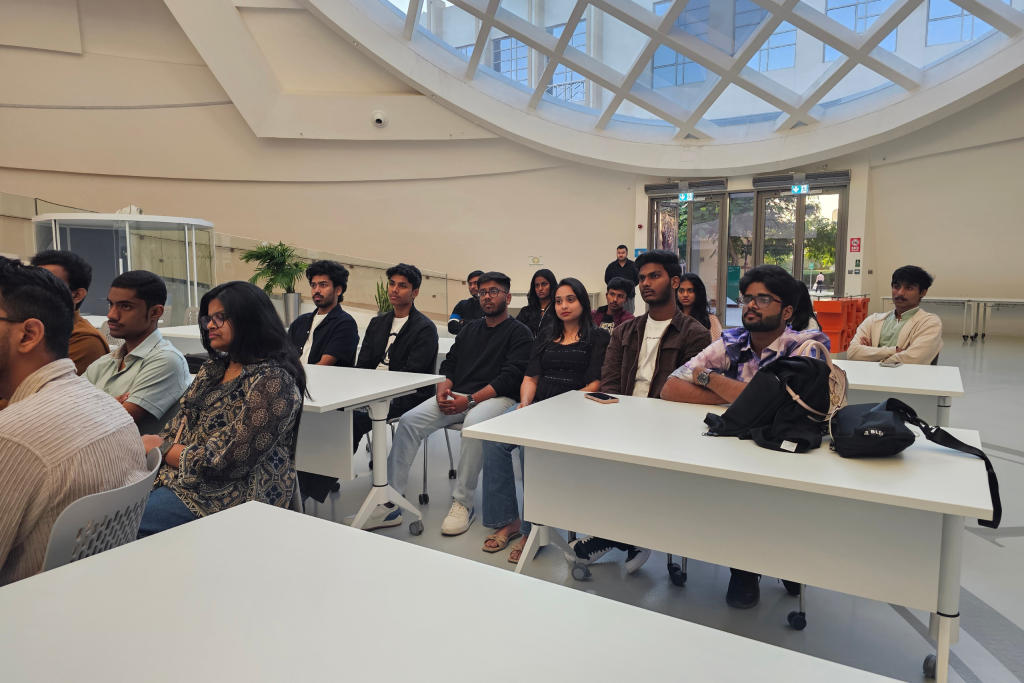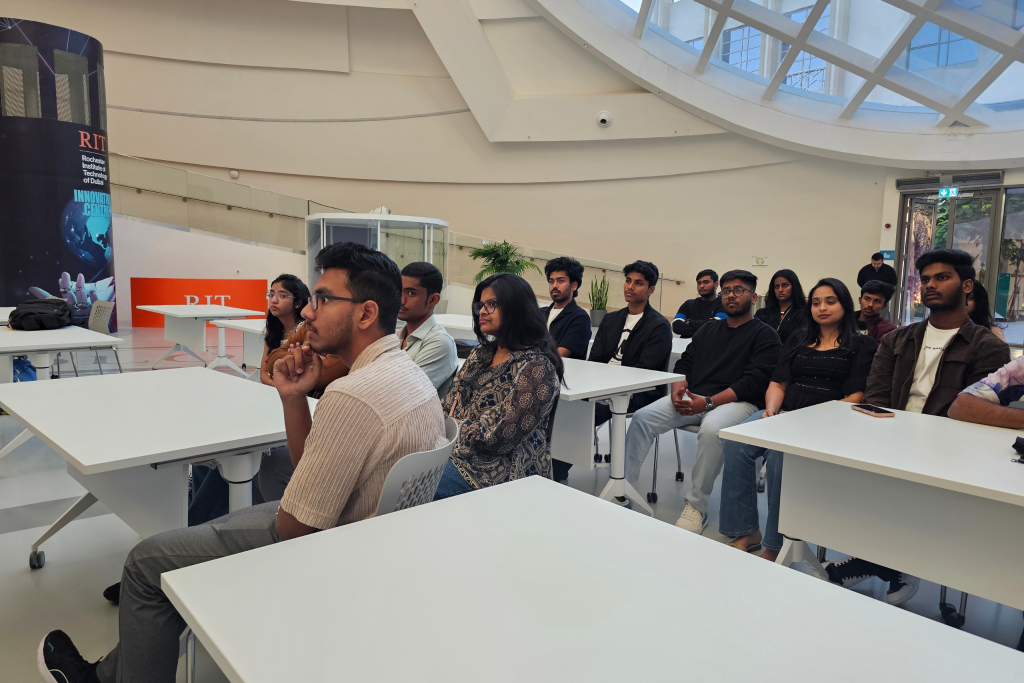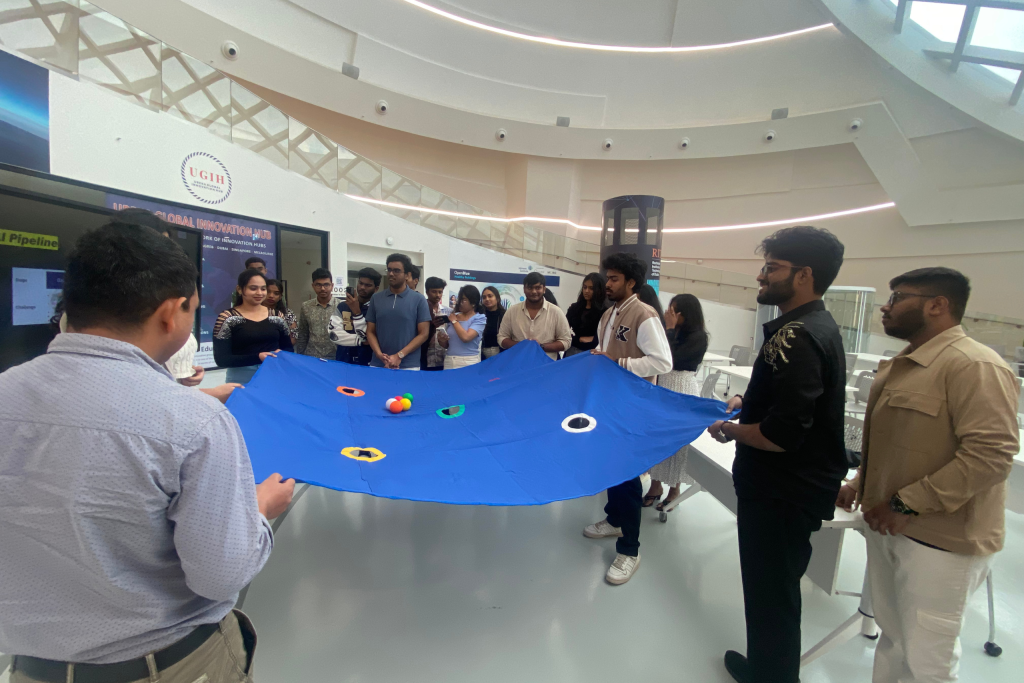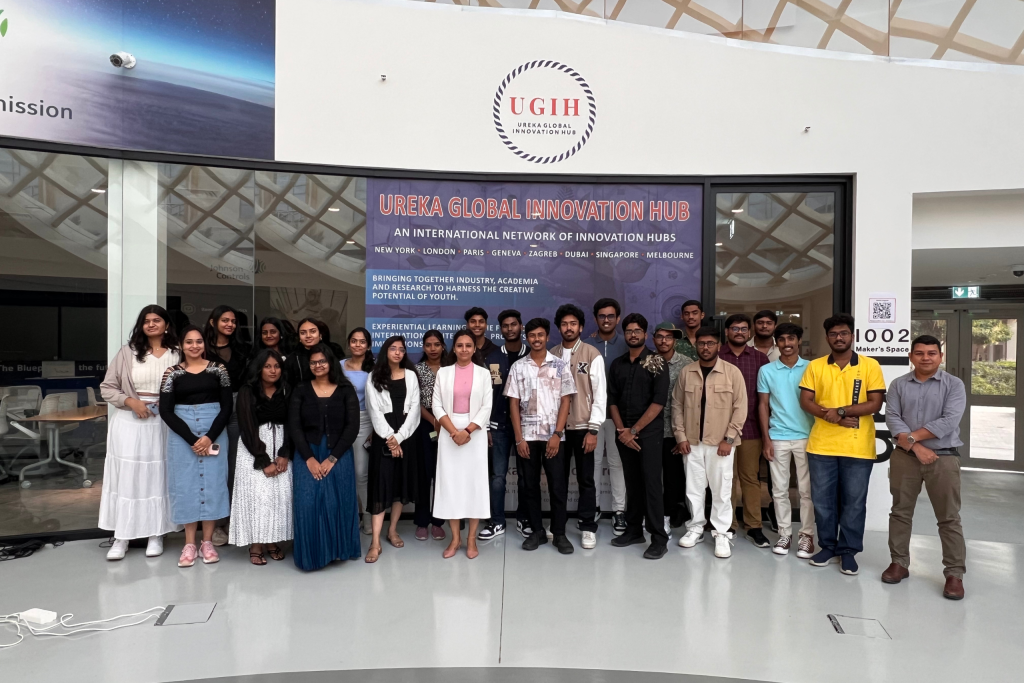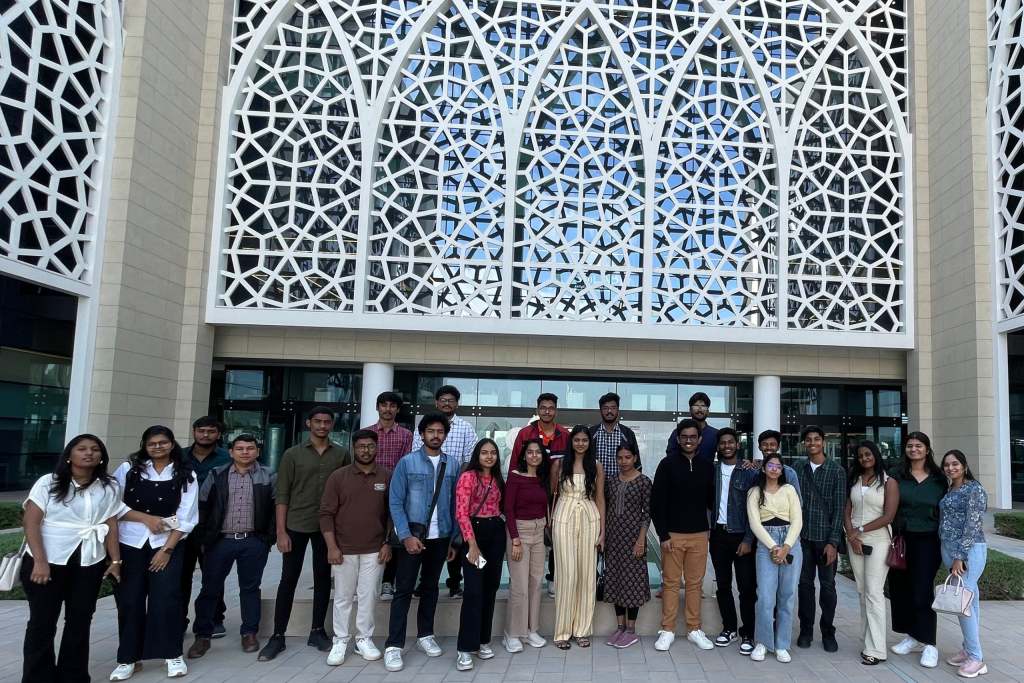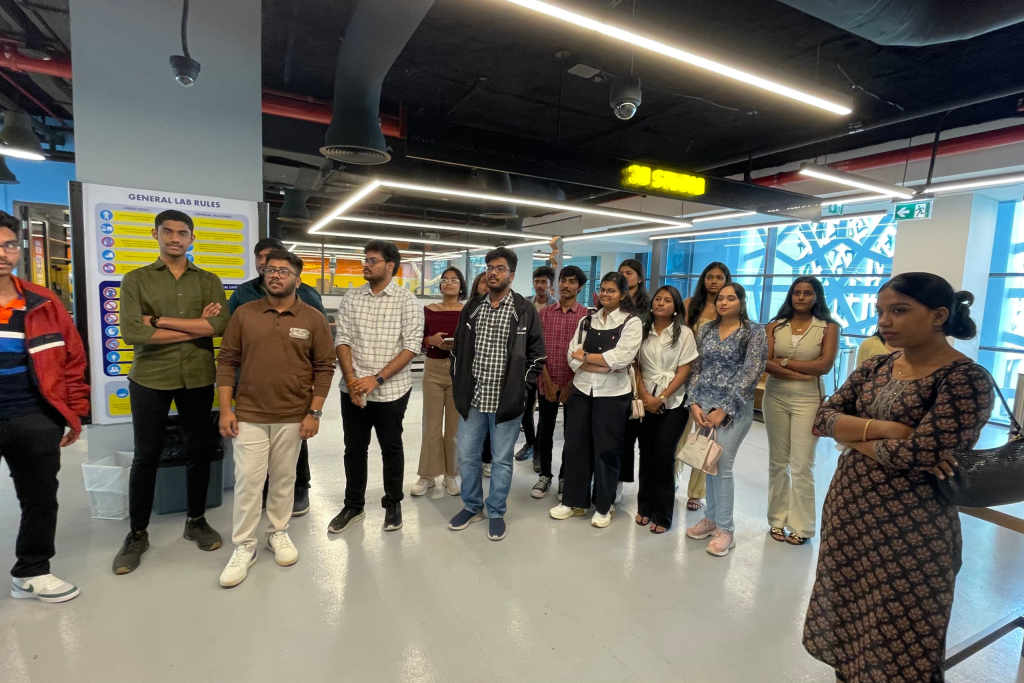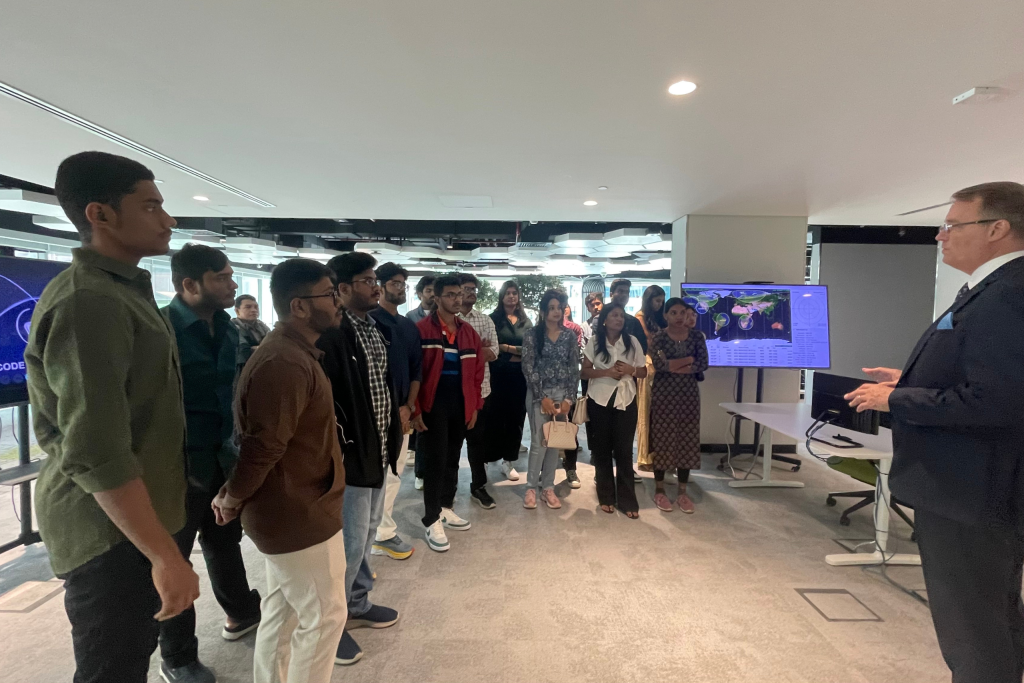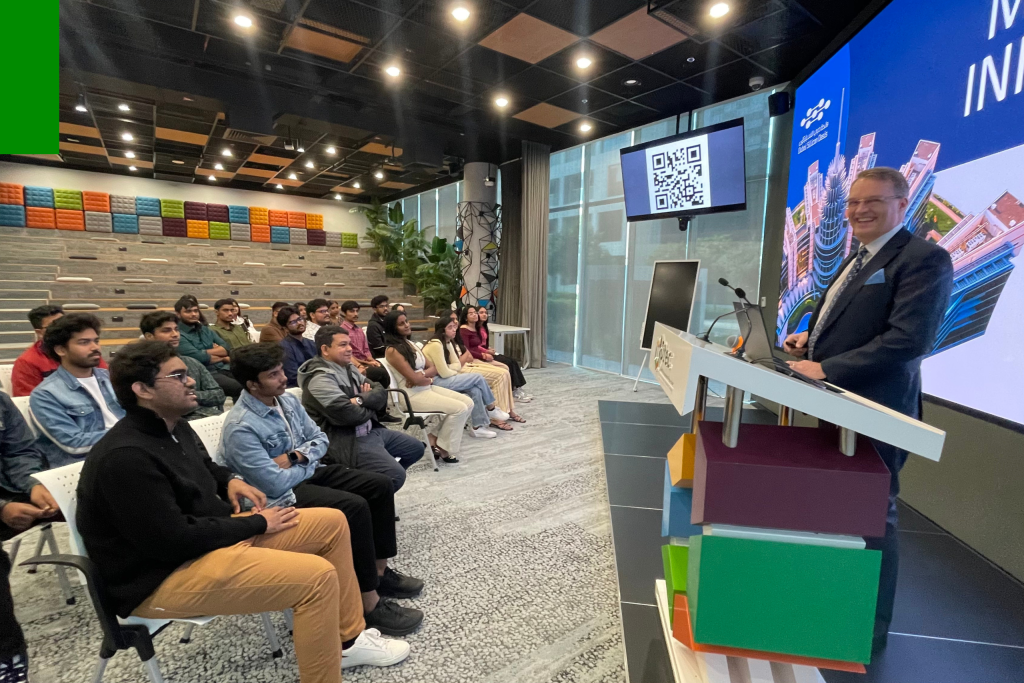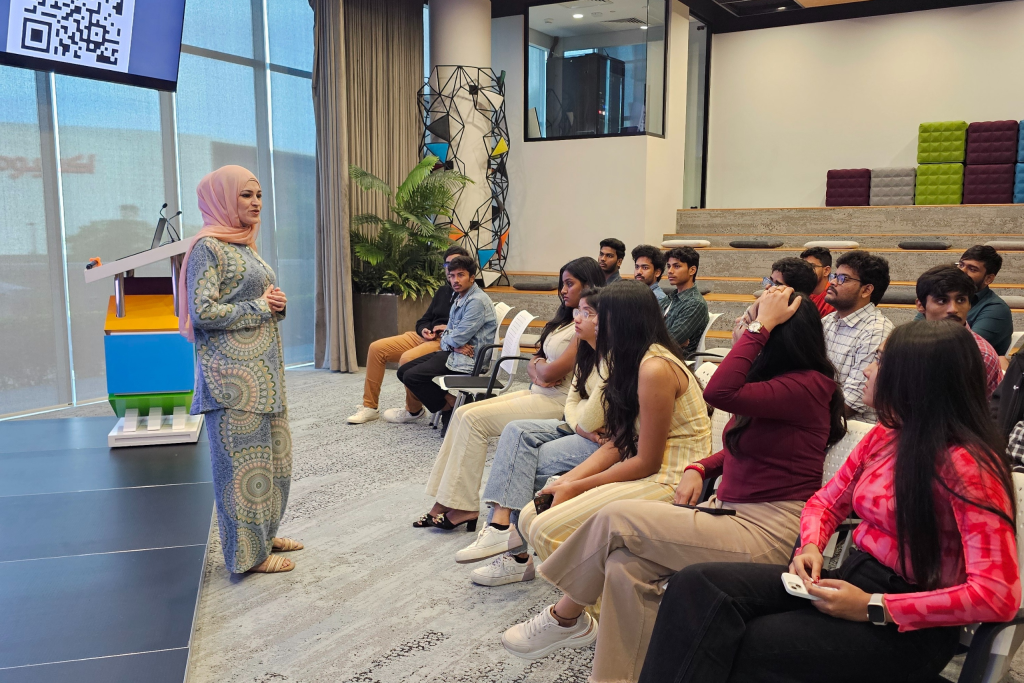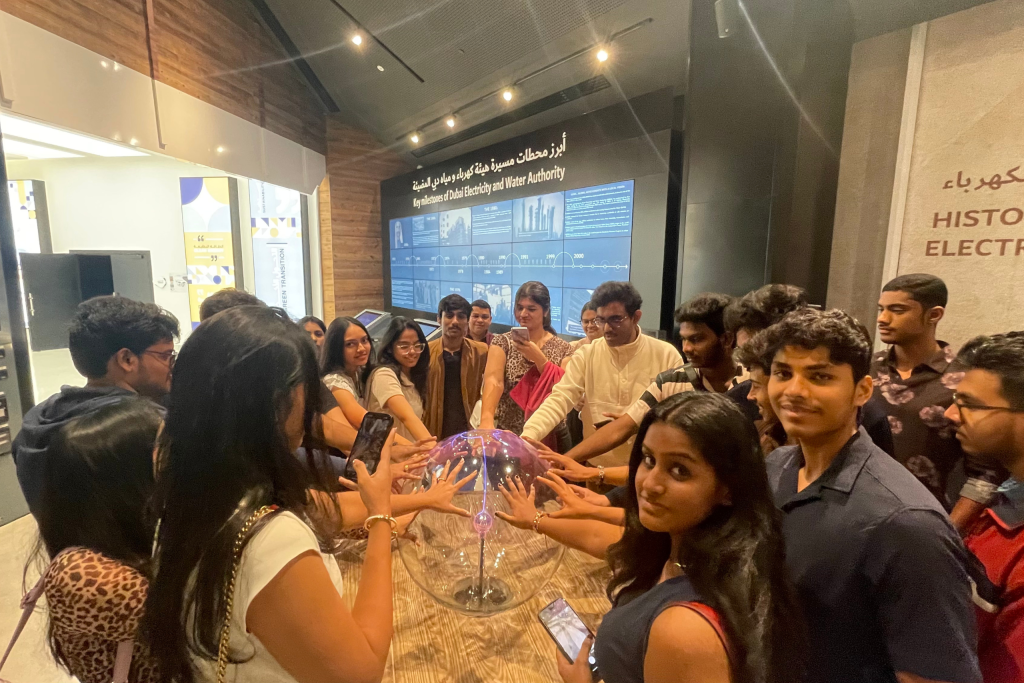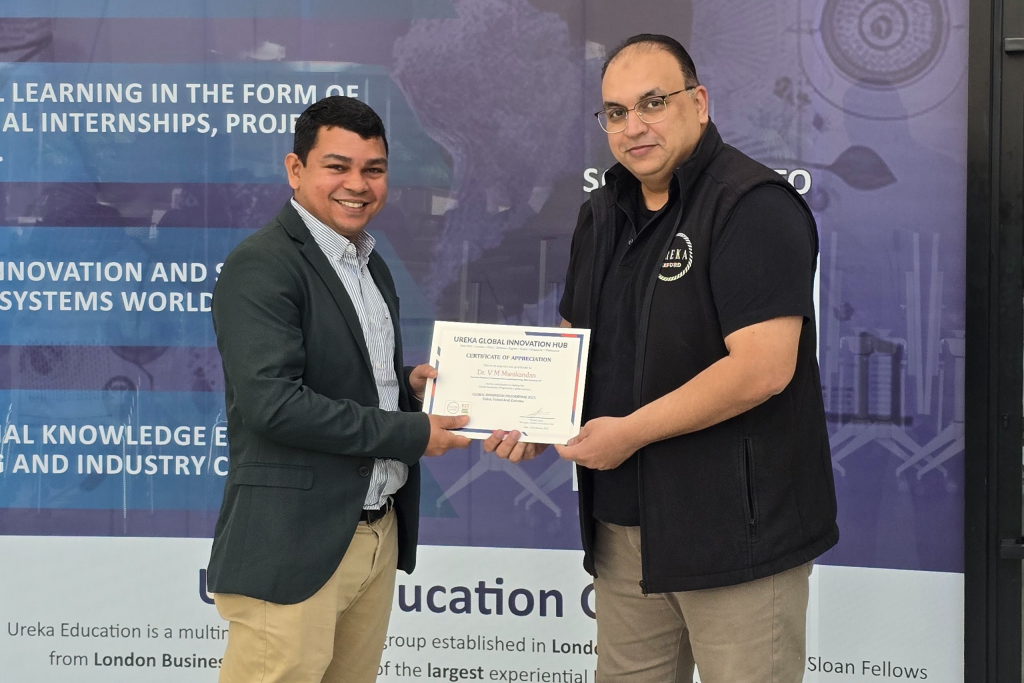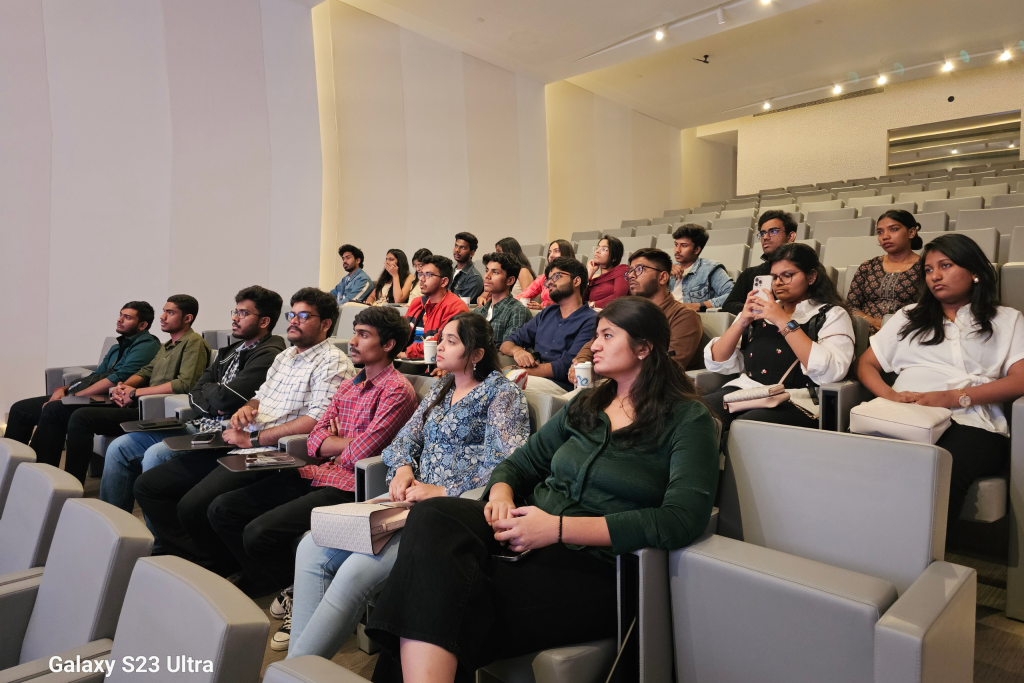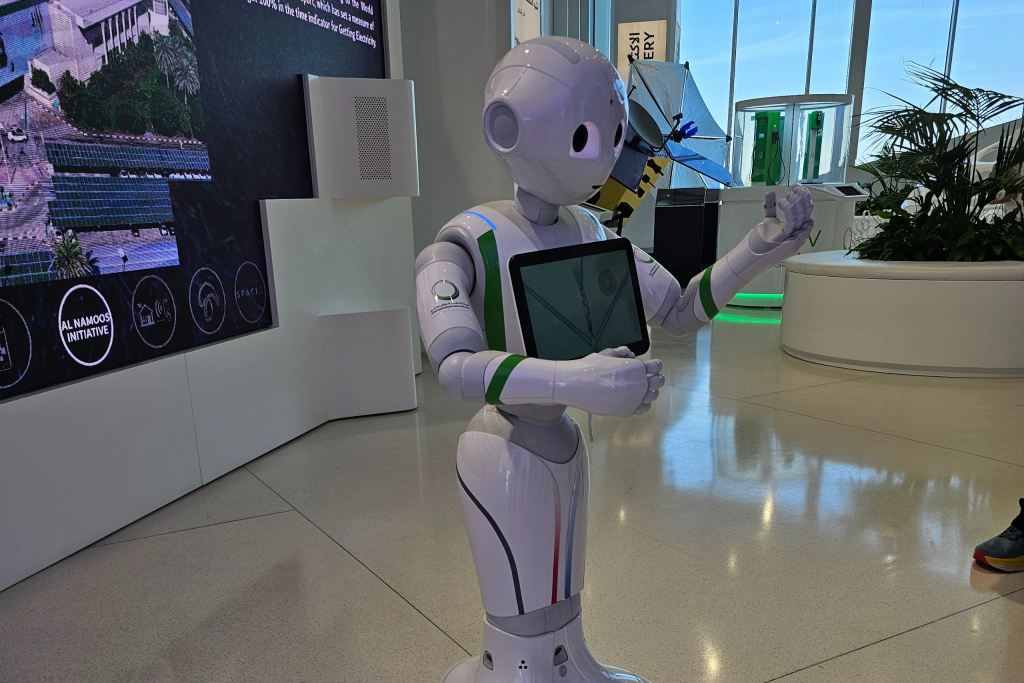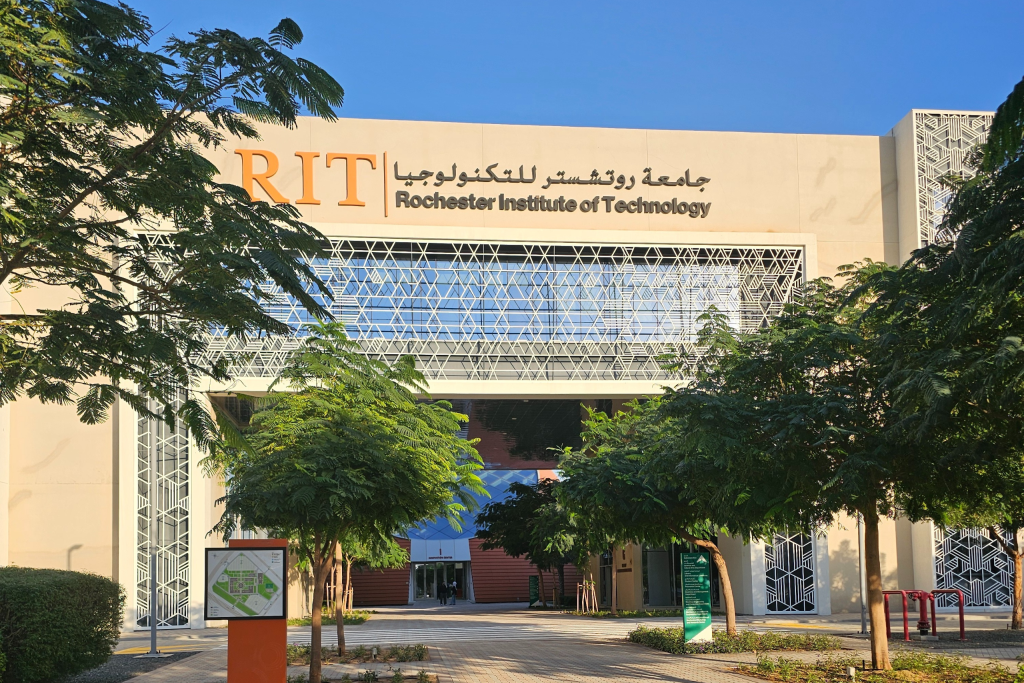National Infotech College, Nepal
SRM University-AP with its goal and vision of internationalisation, also opens the door for the students who aspire to study in India. SRM AP being one of the known and finest universities in India would love to host students and staff across the globe. Its fascinating infrastructure, its globally accepted curriculum, its highly experienced faculties to its wider partnerships worldwide, give a magnificent opportunity to the students.
SRM University-AP welcomed the students and faculty of the National Infotech College, Nepal to the rich cultural landscape of India through the Aadigyan – Summer Youth Programme 2023. The 4-day programme conducted by the Directorate of International Relations and Higher Studies was inaugurated by the honourable Vice Chancellor of SRM University-AP, Prof. Manoj K Arora. Aadigyan is a flagship initiative of the university to promote India’s cultural and knowledge traditions.
Dr Naga Swetha Pasupuleti, Director of International Relations and Higher Studies, received the international students at the grand inaugural ceremony of the programme. Students participated in various short courses on Future Prospects and Introduction -School of Liberal Arts, Introduction to Engineering Programs & Its Future Prospects – Dr Jatindra Dash, CSE Dr Ashu Abdul, CSE Prof. Prakash Jadhav, ME Dr Bhagat, Civil, Introduction to Business Studies & Its Future Prospects – Dr Kamesh.
They also got to visit the famous landmarks of Vijayawada, such as the Dhyana Buddha statue, Prakasham Barrage, Bhavani Island, etc. They have participated in Cricket / Football matches with on-campus International Students.
Students interacted with many industry experts as they visited Efftronics Systems Pvt Ltd, APIIC IT Park, Mangala Giri. Which gave them insights into the current trends and new technologies. The programme also included interaction with the 160+ International students of SRM AP from more than 29 countries.
The programme ended on Aug 04 to 07, 2023, with a valedictory session and facilitating faculty and students of National Infotech College, Nepal.
- Published in Departmental News, IR-News, News
SRM AP, Amaravati’s Landmark Collaboration with Carnegie Mellon University’s School of Computer Science, USA for AI Research, Education

SRM AP, Amaravati, is proud to announce a transformative five-year collaboration with Carnegie Mellon University’s School of Computer Science (CMU SCS), USA-one of the world’s foremost institutions in artificial intelligence (AI) and cutting-edge research. This strategic collaboration aims to push the boundaries of knowledge, innovation and education in AI-related disciplines, including machine learning, natural language processing, computer vision, infrastructure and systems, and AI ethics and policy.
At the heart of this collaboration is a shared vision to foster an ecosystem that nurtures groundbreaking research, cultivates exceptional talent, and accelerates advancements in AI-driven technologies.
A Pioneering Collaboration for AI Excellence

“CMU’s School of Computer Science is excited to work with SRM AP, Amaravati, on this landmark collaboration to advance research and bolster AI education. Together, we will shape the future of AI and empower the next generation of researchers, educators and industry leaders to push the frontiers of technology and drive meaningful change in society,” said Prof. Martial Hebert, Dean of CMU’s School of Computer Science.
Empowering Research Through Global Collaboration
As part of this collaboration, SRM AP, Amaravati’s research faculty and researchers will have the opportunity to engage directly with the esteemed faculty and researchers at CMU’s School of Computer Science. They will immerse themselves in CMU SCS’s pioneering AI labs, working alongside global experts in key research domains. This will facilitate research, knowledge sharing and the development of state-of-the-art AI innovations that address real- world challenges.
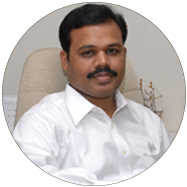
Dr P Sathyanarayanan, Pro-Chancellor of SRM AP, Amaravati, said that “To further strengthen research capabilities, this collaboration will also pave the way to establish advanced AI labs at SRM AP, Amaravati. These labs will be incubators for novel AI research, fostering a stimulating environment that promotes academic rigor, interdisciplinary collaboration and technological innovation”.
Advancing AI Education with World-Class Learning Opportunities
Beyond research, this collaboration is designed to enrich the academic experience of SRM AP’s teaching faculty and research scholars. Selected faculty members and scholars can audit cutting-edge AI courses at CMU’s School of Computer Science as visiting participants. This exposure will allow them to engage with CMU SCS faculty and contribute to developing robust AI curricula at SRM AP. They will also gain hands-on experience in designing assignments, worksheets and examinations that mirror real-world AI problem-solving scenarios, enhancing the quality of AI education at SRM AP, Amaravati,.
Unparalleled Research Internships for Students
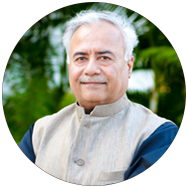
Prof. Manoj K Arora, Vice Chancellor expressed, “In a move that underscores its commitment to nurturing future AI leaders, the collaboration will offer SRM AP students the opportunity to undertake research internships at CMU’s School of Computer Science.”
Selected students will spend approx. six weeks each summer immersed in a world-class research environment, gaining firsthand experience in tackling complex AI challenges alongside leaders in the field. This experience will provide students with unparalleled insights and exposure to global research methodologies, setting them apart in the highly competitive AI landscape.
By leveraging CMU SCS’s expertise and SRM AP’s commitment to academic excellence, this collaboration will drive innovation, expand knowledge horizons and create a lasting impact on the AI ecosystem between the universities.
- Published in Collaborations, News, Research News
Global Immersion: Cultural Exchange at INTI University, Malaysia
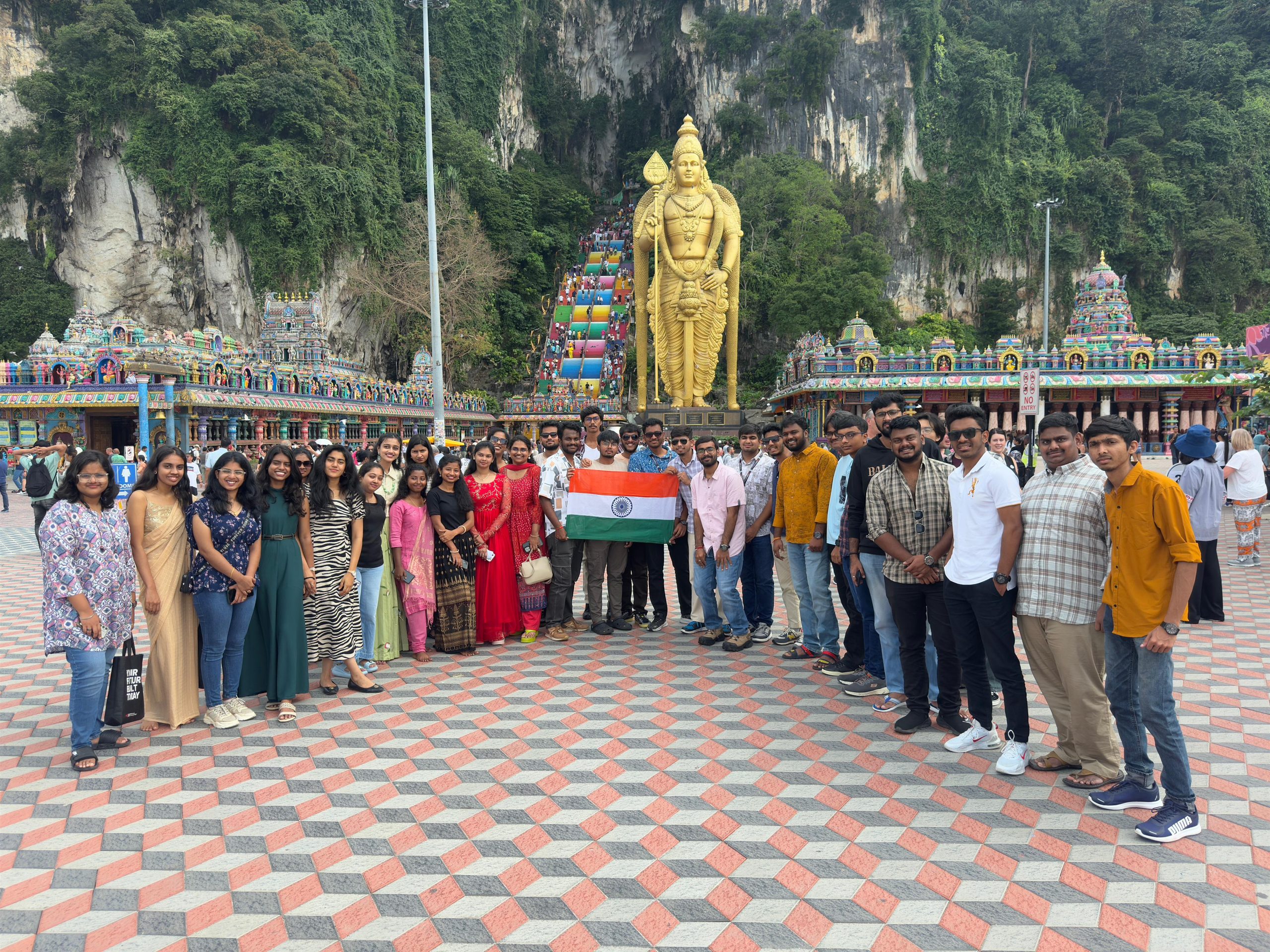
The Directorate of International Relations and Higher Studies (IR&HS) organised a Global Winter Immersion Programme for 32 students and 2 faculty members. The students from SRM AP‘s 3 schools—Paari School of Business, Easwari School of Liberal Arts, and School of Engineering and Sciences—set off for INTI International University, Malaysia.
The Immersion programme offered students an insight into the development and functioning of drone Technology. They were also able to learn how Unmanned Aerial Vehicles (UAV) are revolutionising the surveillance, agriculture, and logistics industry. They were also offered insights into Malaysia’s economy built on strategic trade industries, financial sector, and sustainability initiatives. The immersion programme offered a Physiotherapy Workshop for the students allowing them to understand rehabilitation techniques, injury prevention, and post-surgical recovery methods.
The immersion programme was not just about the academic aspect of student life but also exposed them to traditional Malaysian and Chinese culture through its music, food, games, and the engaging interactions and friendships fostered when native Chinese, Malaysians, and Indians interacted with the students from SRM AP. Immersion programmes such as these not only broaden students’ horizons but also equip them with a wealth of global perspectives.
- Published in Departmental News, IR-News, News
A New Lens on Education: SRM AP’s Global Immersion Programme
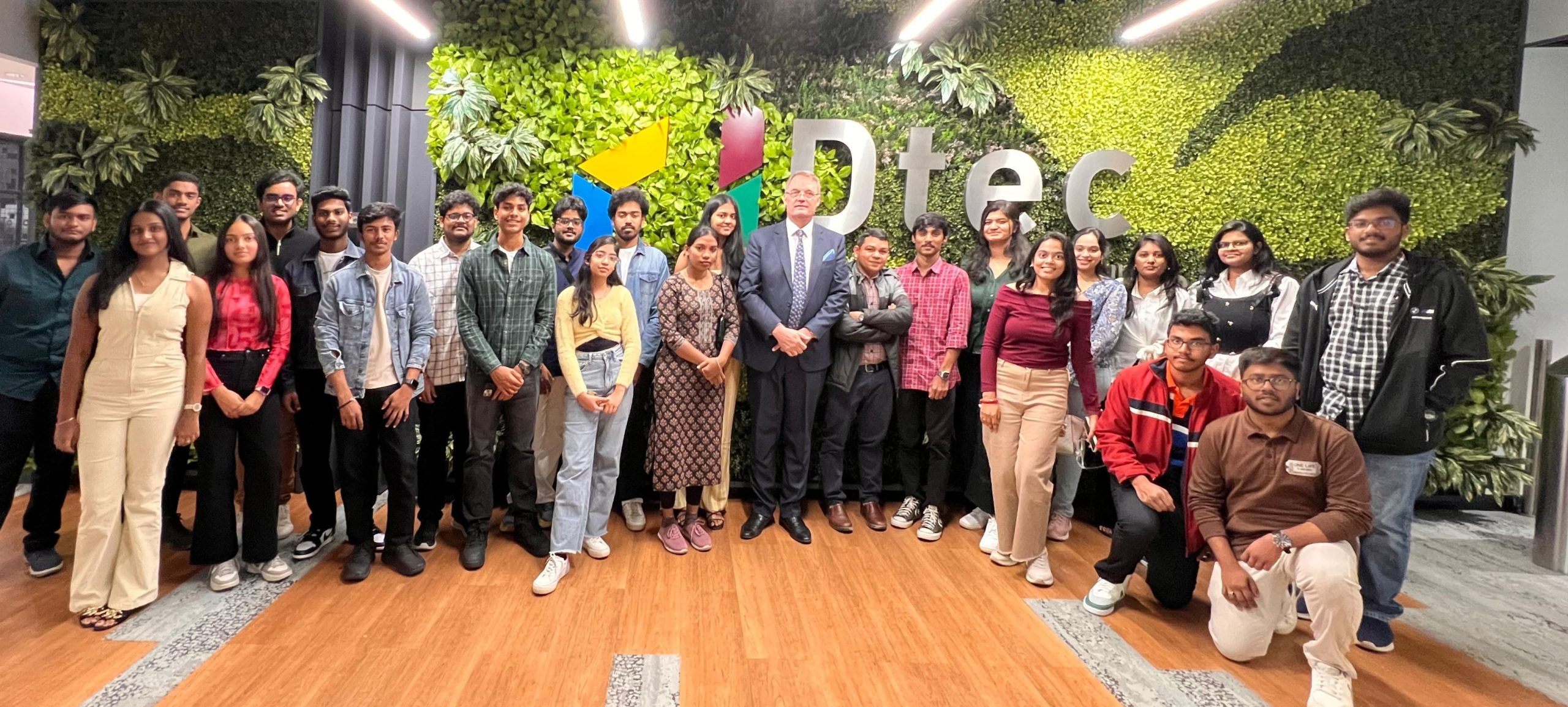 The Directorate of International Relations and Higher Studies’ (IR&HS) flagship event – the Winter Immersion Programme was organised in Dubai this year. The immersion programme was held in collaboration with Ureka Education Group, from January 06-12, 2025. The programme saw the participation of 22 enthusiastic students accompanied by a faculty member from the Department of Computer Science and Engineering.
The Directorate of International Relations and Higher Studies’ (IR&HS) flagship event – the Winter Immersion Programme was organised in Dubai this year. The immersion programme was held in collaboration with Ureka Education Group, from January 06-12, 2025. The programme saw the participation of 22 enthusiastic students accompanied by a faculty member from the Department of Computer Science and Engineering.
During the event participants engaged in intellectually stimulating workshops at renowned research and entrepreneurial centres like – Rochester Institute of Technology (RIT), Dubai Technology and Entrepreneurship Campus (DTEC), and DEWA Innovation Centre, wherein they gained practical insights and technical know-hows in the field of research, innovation and entrepreneurial development. Students also got a first-hand chance to experience a new perspective on the culture and heritage of the country as they visited Masdar City, Sheikh Zayed Grand Mosque, and Global Village.
The immersion programme also allowed students to present their learnings from the trip in the form of presentations at RIT, wherein they also received participation certificates. The immersion programme fostered global perspectives, networking opportunities, and future-ready skills, empowering SRM AP students to excel in their careers.
- Published in Departmental News, IR-News, News


